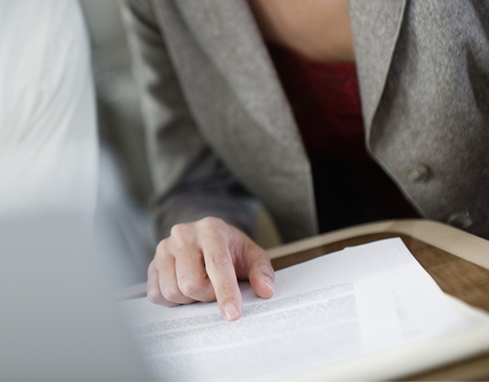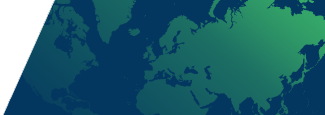

Kazakhstan
Synthesis
major macro economic indicators
| 2020 | 2021 | 2022 (e) | 2023 (f) | |
|---|---|---|---|---|
| GDP growth (%) | -2.6 | 3.3 | 3.2 | 3.9 |
| Inflation (yearly average, %) | 6.8 | 8.9 | 15.0 | 13.5 |
| Budget balance (% GDP) | -4.0 | -3.1 | -2.2 | -2.7 |
| Current account balance (% GDP) | -3.7 | -2.0 | 2.8 | 2.0 |
| Public debt (% GDP) | 26.4 | 25.1 | 24.2 | 25.4 |
(e): Estimate (f): Forecast *Including transfers from the NFRK sovereign fund
STRENGTHS
- Significant oil, gas and mining potential
- The State enjoys a net creditor position and has a well-endowed sovereign wealth fund thanks to hydrocarbon production
- Abundant FDI
- Floating exchange rate
- Member of the Eurasian Economic Union (EAEU) and China's Belt and Road Initiative (BRI)
- Strategically located between Europe, Russia and China
- Significant foreign exchange reserves of the Central Bank (NBK) and the National Fund (NFRK)
WEAKNESSES
- Highly dependent on Russia (main diplomatic and security partner) and China
- Highly dependent on commodities (oil, gas, uranium, iron, steel, copper): under-diversified economy
- Inadequate road, port and electricity infrastructure
- Weakly competitive market structures
- Significant non-tariff barriers despite World Trade Organization (WTO) membership
- Banking system still fragile and significant dollarisation
- Weak governance
Risk assessment
Dynamic growth in 2023
Growth will continue in 2023. Final consumption, the main item of GDP (63% of GDP in 2021) and, in particular, that of households (43%) will continue to be weakened by persistent inflation. Real wages may not increase at the same rate as inflation, which will erode household purchasing power. The deteriorating economic situation in Russia will generate fewer remittances from expatriates settled there (44% of transfers), but this will have almost no impact on GDP (remittances from expatriates represented less than 0.5% of GDP in 2021 ). Gross fixed capital formation (27% of GDP in 2021) will have a positive impact on GDP. Its share of GDP has been increasing for several years: in 2022, nearly half these investments were devoted to the manufacturing sector (up by nearly 6% year-on-year). This trend will continue in 2023. The government's main priorities are to diversify the productive system and invest in structural projects: manufacturing industry, infrastructure projects in the regions, development and support of SMEs and entrepreneurship, as well as the development of transport and the gas transport system. Net exports will contribute positively to GDP, but will be offset by less attractive oil prices than in 2022 and by imports of capital goods and intermediate products. The National Bank of Kazakhstan (NBK) has maintained a key interest rate at 16.75% since December 2022, following several increases in 2022. According to the NBK, despite an inflation peak reached in December 2022, the current rate is justified by uncertainty and the absence of a downtrend. This rate should help to stabilise and subsequently gradually reduce inflation, which is the NBK's objective (with a target corridor of 15.75 - 17.75%).
Trade balance in surplus, but the budget is in deficit
The trade balance will remain in surplus in 2023. From the point of view of exports, the increase in 2022 will be mitigated not only by a lower price of oil, but also by the government's decision to suspend its natural gas exports in the winter in order to overcome shortages at the national level. Exports to EU countries, as well as to China, will increase in 2023, following Kazakhstan's resolve to reduce its dependence on Russia. However, oil exports could be compromised in the event that the Russian Federation decides to cut off Kazakhstan's access to the Caspian Sea Pipeline (CPC), through which 80% of exports pass. From the import perspective, demand for imports of capital goods and intermediate products will gradually pick up following a slight easing of inflation. The balance of services will contribute negatively to the current account balance, as will the balance of primary incomes (resulting, in particular, from the repatriation of income from foreign investors and income from cross-border workers). External debt will remain high (84% of GDP in 2021), although it decreased by 2.3% from January to October 2022. With regard to public accounts, the national budget law of 2023-2025 provides for a gradual decrease in the deficit to 2.5% of GDP by 2025. The government wishes to increase revenue associated with non-oil revenues (from 60% in 2022 to 78% in 2025). More spending will be earmarked for the real economy, although the main item of expenditure will remain that of social benefits. Public debt will remain low.
The urge for internal political stability coupled with a resolve to distance itself from the Russian Federation
Following violent protests in January 2022, President Kassym-Jomart Tokayev (re-elected with 81% of the vote in a snap election in November 2022) presented a programme of institutional reforms adopted by referendum in June 2022 with 77% of the vote. The programme was aimed at reforming the Constitution, which had not happened since 1995. One of the major planks was the fight against corruption, with a ban on those close to the President from occupying high-ranking positions within of the government, and the President and the deputies being prohibited from belonging to a political party during the exercise of their functions. The powers of the President are also limited for the benefit of Parliament. With the new mixed electoral system, the members of the lower house of Parliament, Majilis, will be elected, either by proportional representation on the list (70% of them), or by majority vote by constituency (for the remaining 30%). The parliamentary election took place on 19 March 2023 and was observed by the Organization for Security and Cooperation in Europe (OSCE). The President's former party, Amanat, won the majority of the vote, with 40 seats out of the 69 available for the proportional election, as well as 22 of the 29 seats in the majority vote.
Kazakhstan has always taken care to maintain good relations with Westerners, as well as with China and Russia. The authorities of Kazakhstan did not openly condemn the invasion of Ukraine by the Russian Federation, but vowed to respect the territorial sovereignty of Ukraine. Since the invasion, Tokayev has received several high-ranking Western and Chinese political figures, such as the President of the People's Republic of China (PRC), Xi Jinping, in September 2022. These visits aim to strengthen strategic partnerships, particularly on the economic level and also on the military level. This is particularly Turkey’s case with which Kazakhstan would like to cooperate, in particular for arms production.
Kazakhstan wishes to reduce its dependence on Russia, while still claiming to be a strategic partner. For example, infrastructures for the transport of Russian natural gas to the eastern regions of Kazakhstan are being developed with Gazprom. At the same time, Kazakhstan has moved closer to the European Union, its main trading partner. Several agreements have been concluded, including one in November 2022 on the supply of raw materials, refined products, green hydrogen and batteries, and oil delivery contracts with Germany via the Russian pipeline Druzhba. Kazakhstan also wishes to develop its partnership with Asian countries, such as China, Japan, Korea and, to a lesser extent, Pakistan. More specifically, Kazakhstan is part of the Quadrilateral Agreement on Transit (Road) Traffic (QTTA), which makes it possible to bypass Afghanistan using the China-Pakistan Economic Corridor (CPEC).
Last updated: June 2023



